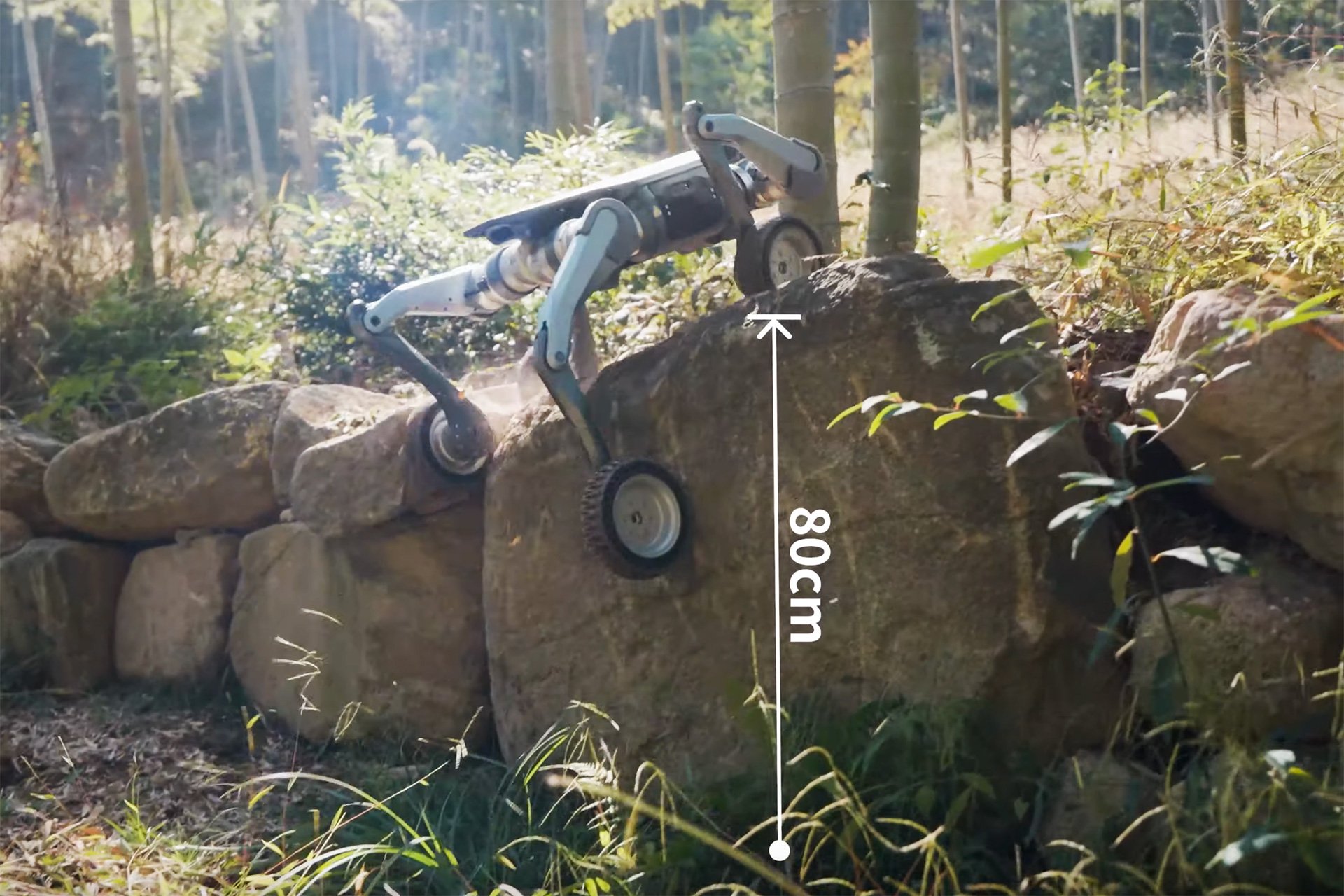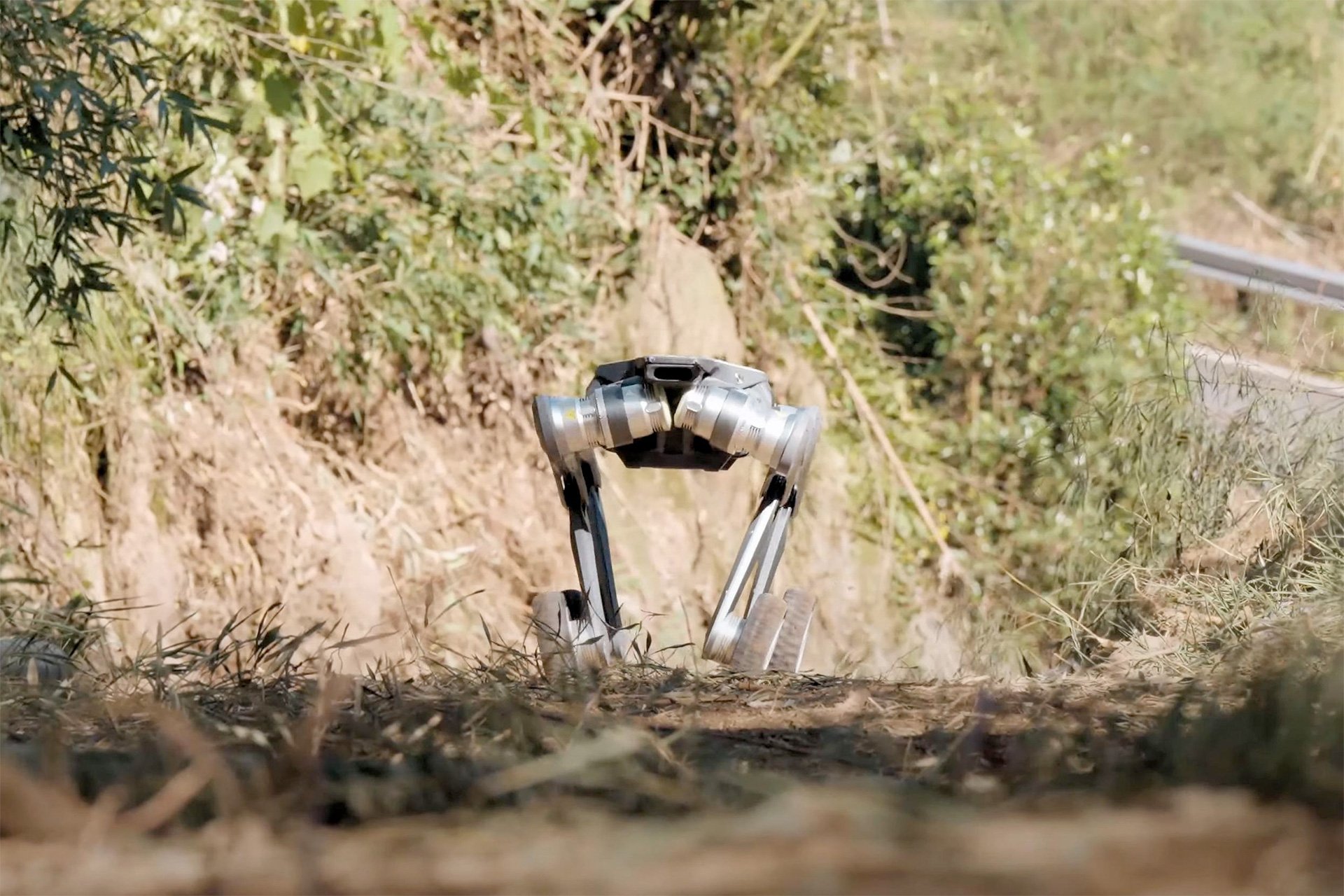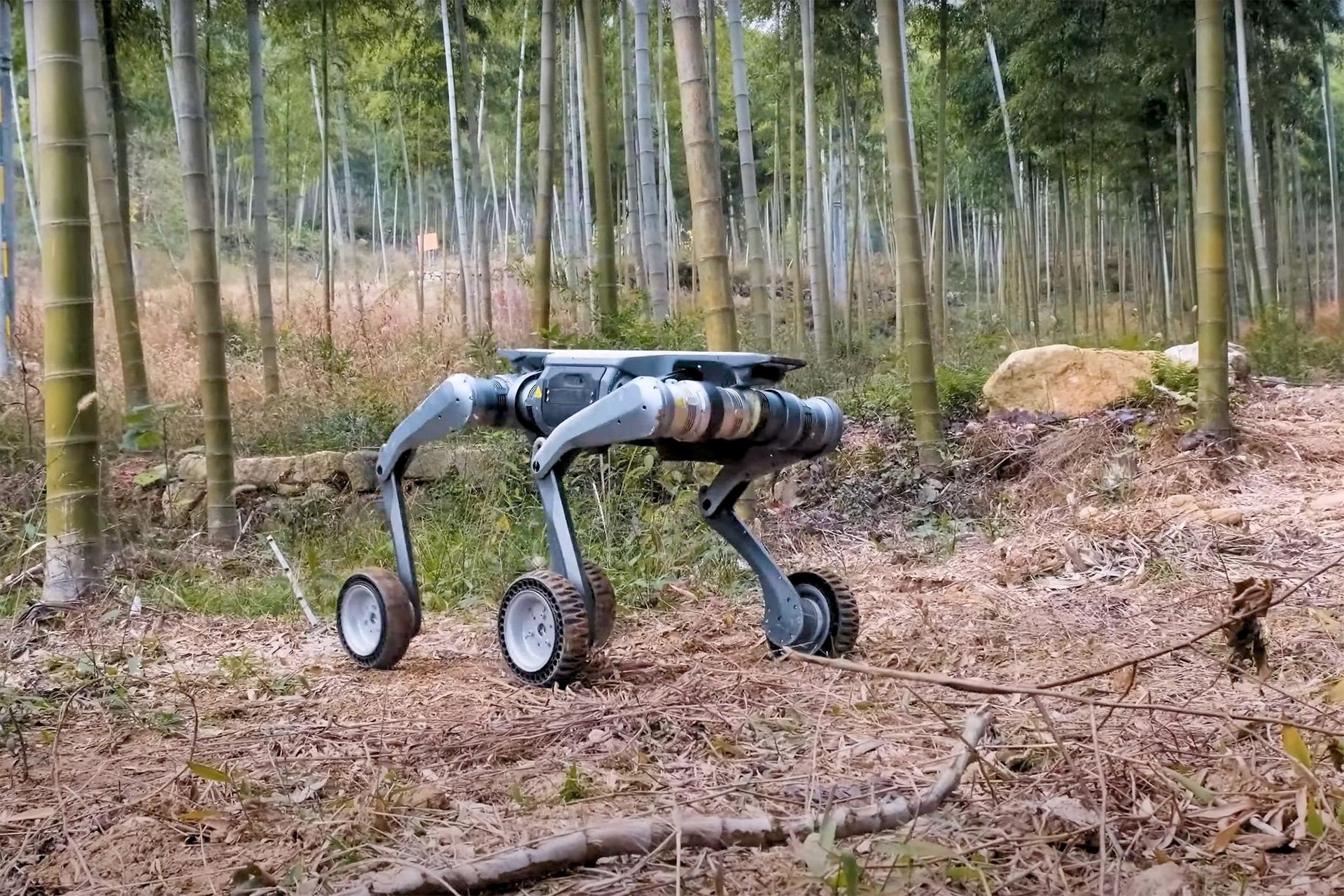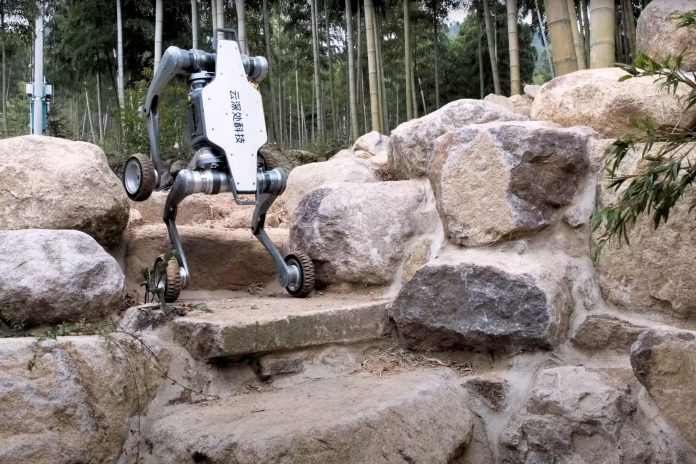China-based DEEP Robotics is expanding its lineup of quadruped robots with the introduction of the Lynx. Unlike traditional pad-footed robots, the Lynx features four wheels, enhancing its ability to navigate diverse and challenging terrains at higher speeds. This innovation marks a significant addition to DEEP Robotics’ existing range, which includes the Lite3, X20, and X30 models.
In recent years, quadruped robots from companies like LimX Dynamics, Unitree, and ETH Zurich have demonstrated significant advancements in engineering and artificial intelligence. These robots typically rely on walking on all fours, a design that, while versatile, may not be ideal for all mission types and can limit speed and efficiency. By integrating wheels instead of pads, DEEP Robotics aims to overcome these limitations, offering a solution that combines mobility with speed.
The Lynx, showcased in a pre-launch promotional video, highlights its all-terrain capabilities. The wheeled design allows the Lynx to traverse various surfaces, including loose earth, dusty gravel, and paved areas, with ease. The robot can lock all four wheels to facilitate movement over obstacles or adapt to different terrains seamlessly. During filming, the Lynx successfully navigated a demanding multi-terrain assault course, which included a controlled descent down a steep slope, walks on two-wheeled legs, and the ability to climb over an 80-centimeter-high boulder.
DEEP Robotics’ approach to mobility is not entirely unprecedented. Similar advancements have been made by the Swiss-Mile Robot with its W1 and Go2-W models, which also utilize wheels to enhance performance on uneven surfaces. However, the Lynx distinguishes itself with its mid-sized build and the ability to maintain a high level of control while increasing speed and maneuverability.

While the official launch of the Lynx is pending, further details regarding its artificial intelligence capabilities and technical specifications are expected to be revealed. DEEP Robotics’ existing quadruped models are known for their autonomous operation, lasting up to four hours on a single charge in industrial environments. The Lynx is anticipated to build on this foundation, offering enhanced multi-terrain functionality that broadens its applicability.
Potential real-world applications for the Lynx include search and rescue missions, mapping and surveying tasks, inspection operations, and the transport of equipment. These functionalities make the Lynx a versatile tool for various industries that require reliable and efficient robotic assistance in challenging environments.

Max Wu, a representative from DEEP Robotics, expressed enthusiasm about the new addition, stating, “DEEP Robotics is about to debut this middle-sized powerful quadruped wheel solution, unlocking new levels of flexibility, productivity, and ease of use for our customers. Let’s redefine the boundaries of what robots can achieve.”

Source: DEEP Robotics



